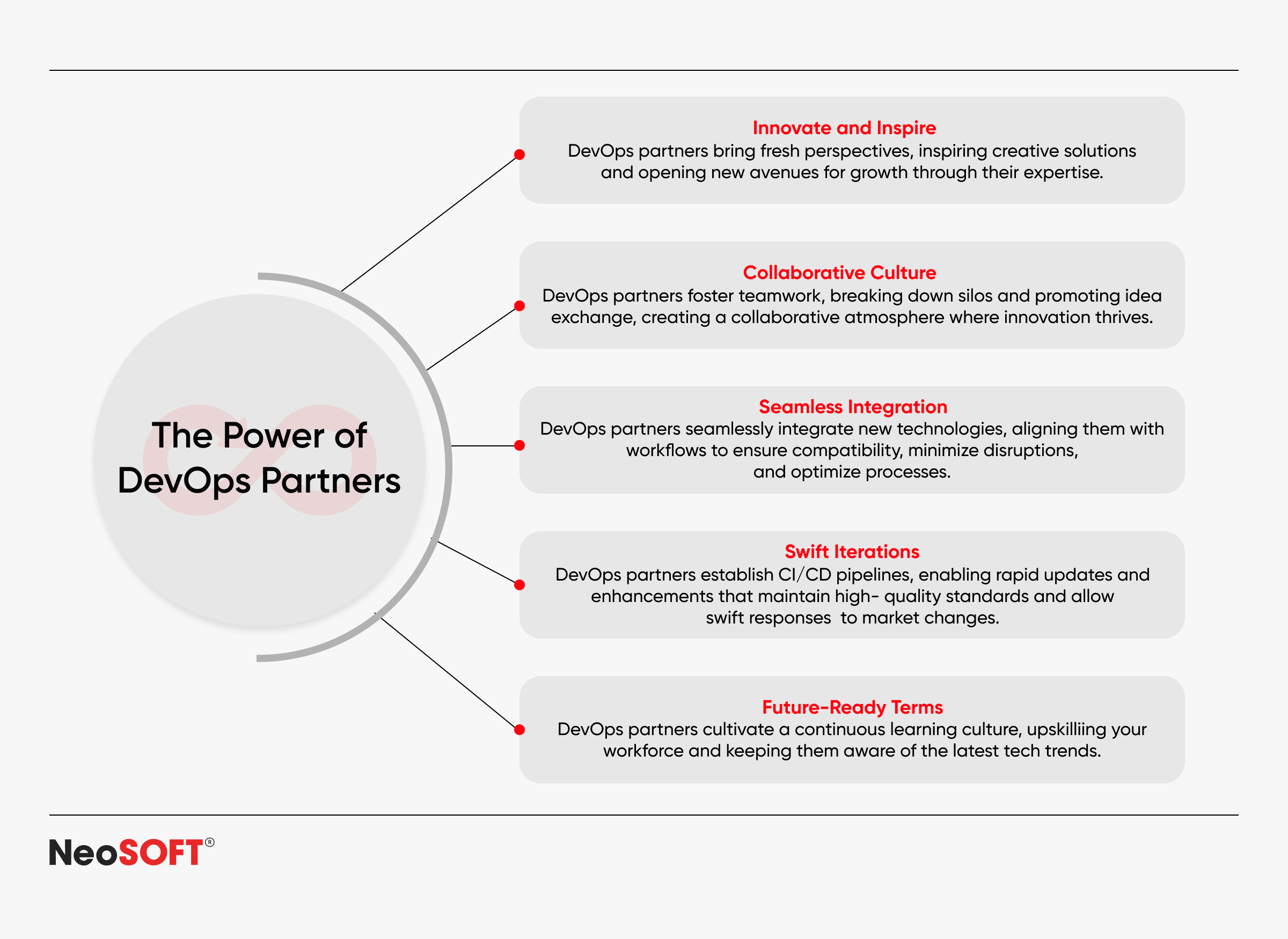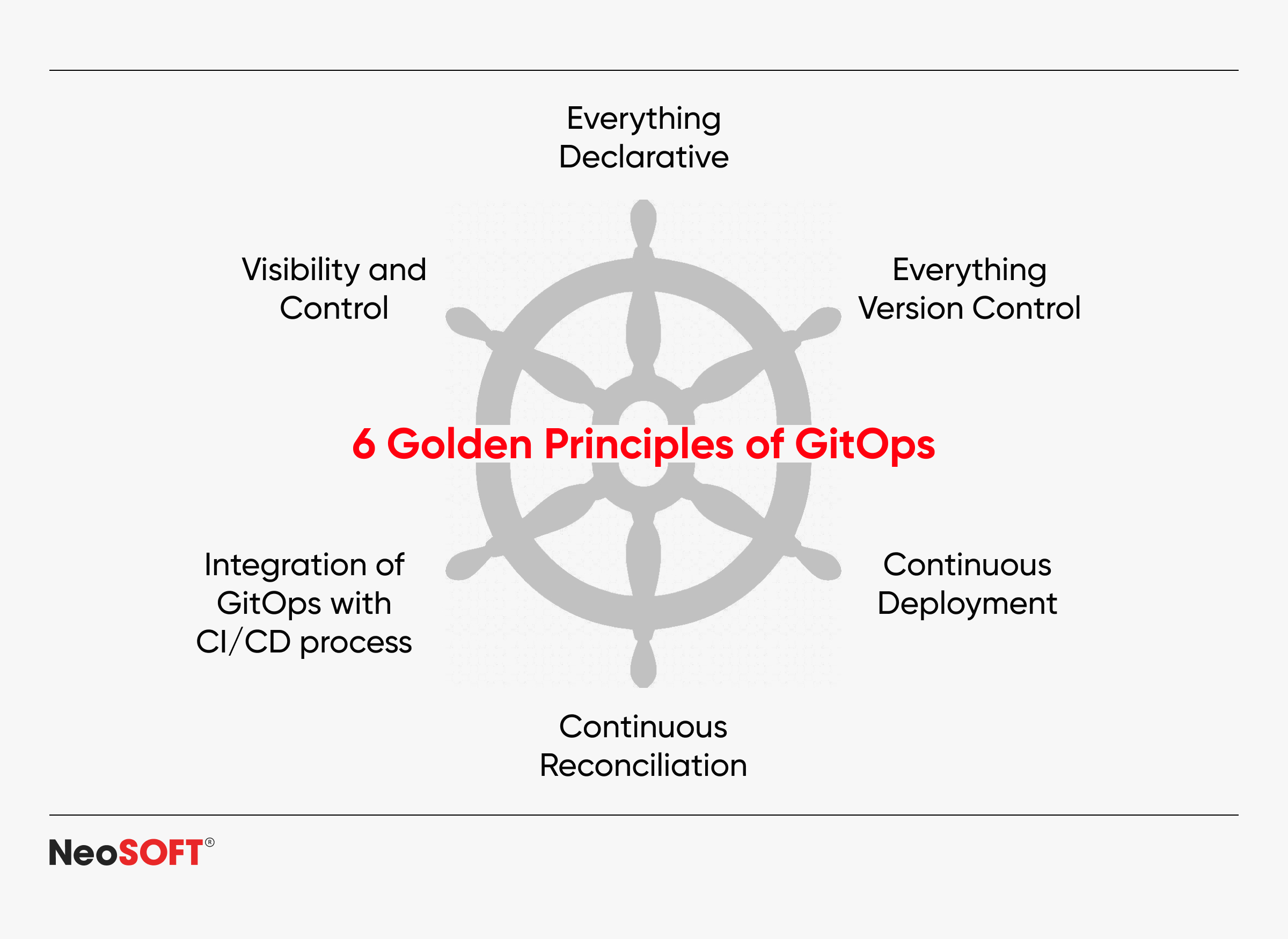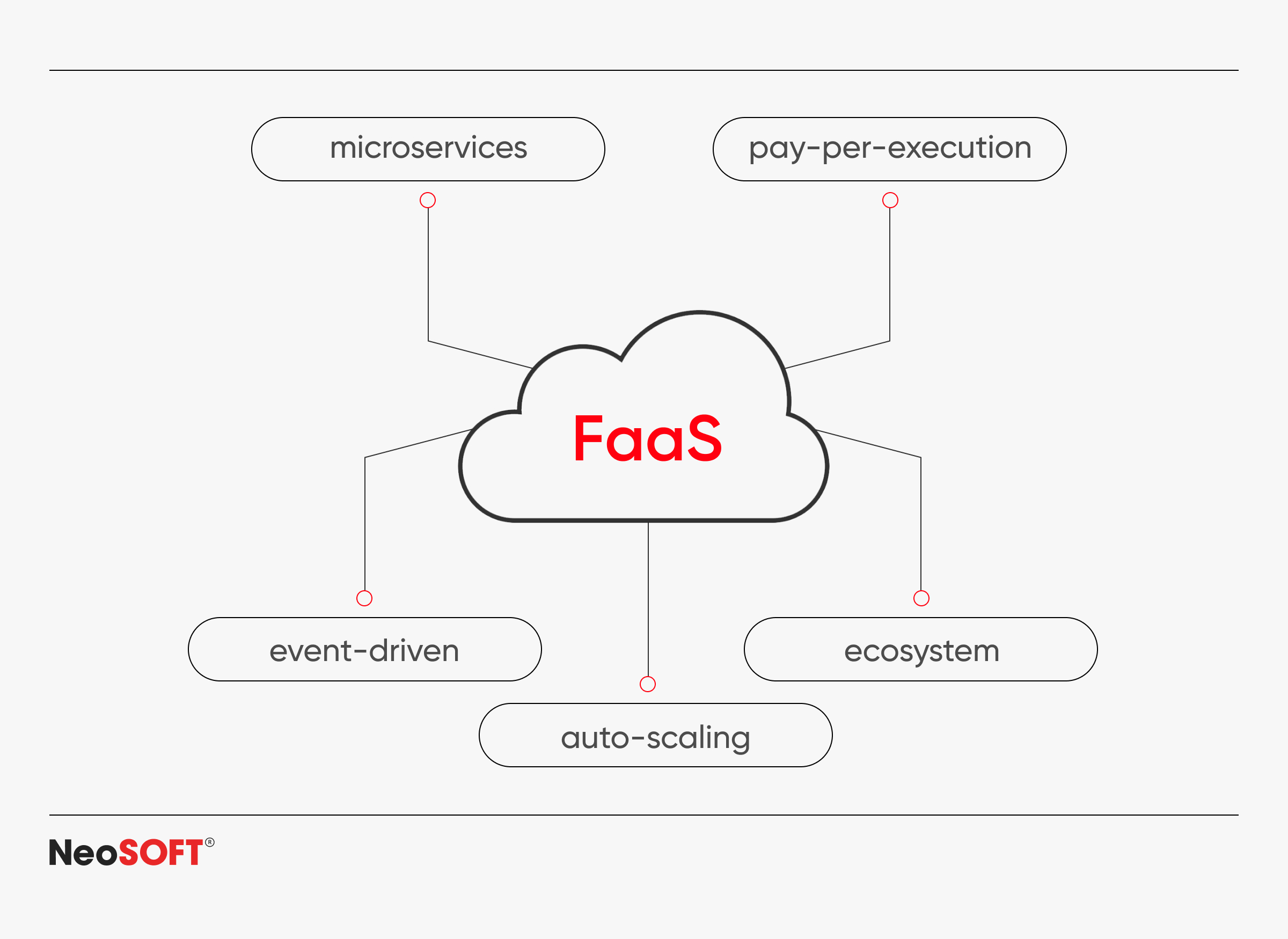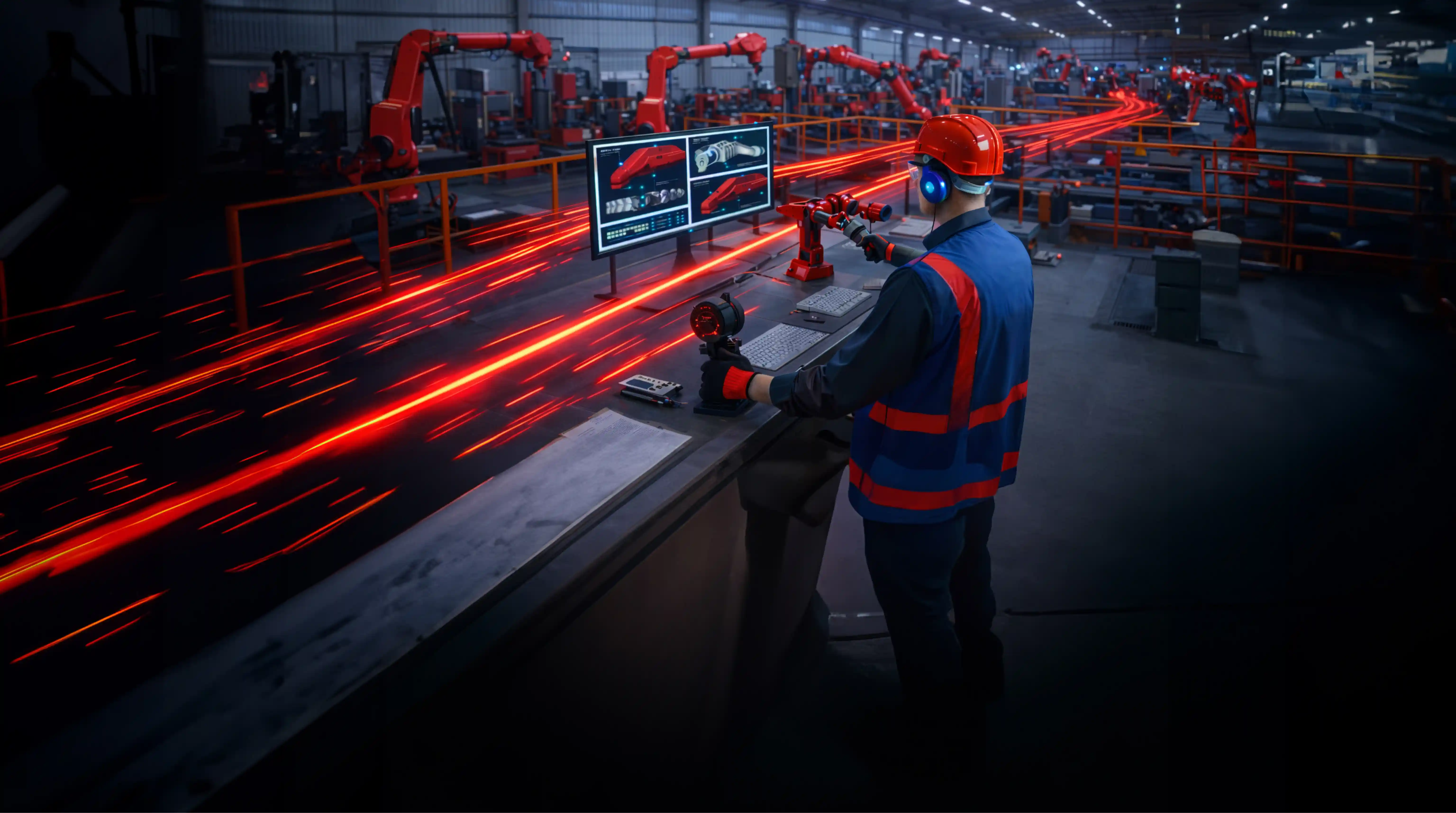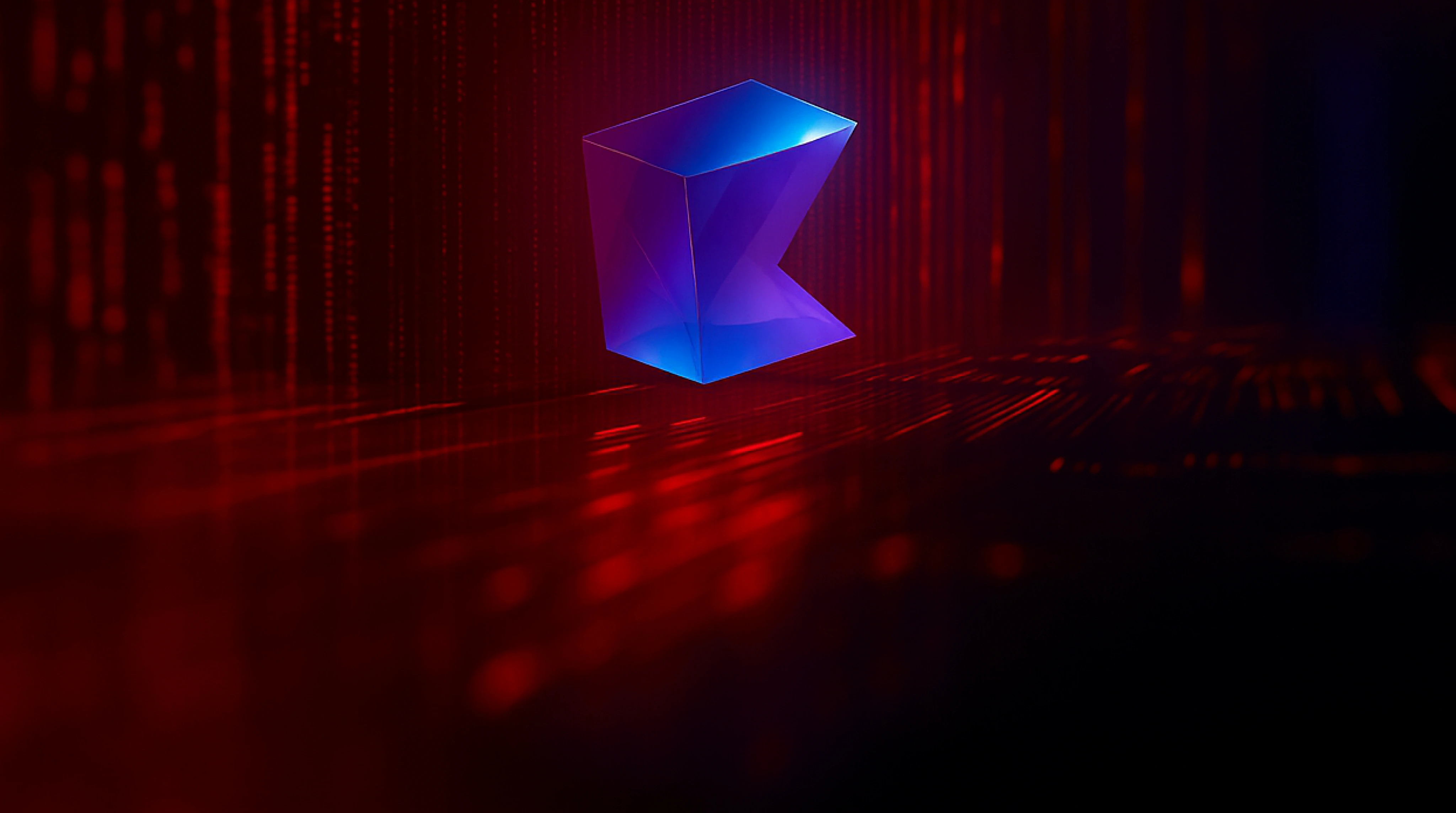DevOps in the Future: DevOps Engineers as Strategic Partners
August 6, 2024
Introduction
DevOps practices have become increasingly important to the software development process and IT services and solutions. Atlassian conducted a poll on DevOps trends in 2020, and 99% of respondents claimed that implementing DevOps and similar approaches benefited their firm, while 61% said it helped them generate higher-quality deliverables.
Encouraging collaboration between Development and Operations teams supports companies in deploying software with greater efficiency, dependability, and quality assurance. This strategy is important for organizations that want to adapt to the changing market conditions and stay ahead of the competition.
DevOps engineers have traditionally been seen as the backbone of the software development life cycle, with a focus on infrastructure management, automation, and smooth CI/CD procedures. But their function is evolving alongside the technology. These skilled professionals are now seen as important strategic partners as organizations realize the unique benefits of a DevOps approach.
In addition to promoting operational effectiveness, DevOps engineers can act as catalysts for expansion and innovation in business. This blog will explore the growing significance of DevOps engineers and their role as strategic partners, going over the necessary skills required for success in this position, and the effects of cutting-edge tech like artificial intelligence and machine learning on their job and in the DevOps software development process.
The Evolving Function of DevOps Engineers
DevOps engineers have been responsible for closing the gap between the development and operations processes thus far. This process included:
- Infrastructure Automation – Automating the software development, quality testing, and application deployment processes.
- Infrastructure Management – Monitoring and maintaining the scalability and reliability of the infrastructure required to support the development environments.
- CI/CD Processes – Establishing and overseeing the continuous integration and continuous delivery pipelines for quicker software development and deployment.
- Monitoring and Maintenance – Monitoring platforms and infrastructure to identify issues and come up with for smooth development and operations.
Engineers in DevOps as Strategic Allies
DevOps engineering teams are being recognized for their strategic contribution to organizations more and more. This shifts their function from solely operational to one that includes larger corporate goals. A strategic DevOps engineer enhances the organization’s performance by bringing new technologies and techniques that boost efficiency and productivity.
They are also always searching for methods to improve existing processes so that the company may remain competitive in a rapidly expanding market. They coordinate technological activities with the overall business plan, ensuring that all technical efforts support the company’s long-term objectives.
DevOps engineers are becoming critical decision-makers, with their technical knowledge giving important insights that impact major business choices. They advise on the implementation of new technologies and platforms that can improve operational efficiencies and promote company growth.
They also suggest adjustments to processes to improve agility and shorten time-to-market for new products. Furthermore, DevOps teams assist with long-term strategy planning by coordinating technological capabilities with future business requirements.
Collaboration with Cross-Functional Teams
Effective collaboration across teams is critical to the strategic function of DevOps engineers. They work with:
- Product Managers – Making sure the specifications for the product are both technically and logistically achievable.
- Development Teams – Enabling continuous deployment pipelines and smooth integration to shorten the software development lifecycle.
- Operations Teams – Keeping up a scalable and reliable production infrastructure to enable both new deployments and continuous development operations.
- Security Teams – Integrating security best practices into development and operations processes to protect the organization’s assets.
Influence on Business Outcomes and Innovation
DevOps engineers’ strategic participation directly affects business outcomes and promotes innovation. They improve the quality and reliability of software applications by adopting automated testing and quality assurance procedures.
Organizations can adapt to market demands more rapidly and shorten time-to-market thanks to faster release cycles and better CI/CD pipelines. DevOps tools also support continuous experimentation and improvement of application code, encouraging software developers to adopt cutting-edge approaches and agile development practices to propel the software developer and organization forward.
What Future DevOps Engineers Need to Know
Achieving success in the rapidly developing field of DevOps demands a blend of technical proficiency and soft skills, along with a strong commitment to continuous learning. Some of these necessary DevOps skills include:
Technical Skills
- Automation – Proficiency with task and configuration automation systems such as Ansible, Puppet, and Chef.
- Cloud Computing services – Knowledge of cloud computing services including Microsoft Azure and Google Cloud platforms.
- Containerization tools – Container orchestration and management experience using Docker and Kubernetes.
- CI/CD pipelines – Mastery of continuous integration and continuous delivery pipelines, including Jenkins, GitLab CI, and CircleCI.
- IaC – Experience managing infrastructure using Terraform or Cloud Native tools like AWS CloudFormation.
Interpersonal Abilities
- Communication – The ability to clearly communicate complicated technical concepts to team members and stakeholders.
- Problem-solving – Identifying potential problem areas and effective solutions to them quickly.
- Strategic thinking – To guarantee that business processes are heading in the correct direction, aligning the DevOps strategy with corporate objectives is important.
The best DevOps engineers keep up with the latest developments, as continuous learning is required in order to maintain competitiveness and effectiveness in a rapidly advancing field.
The DevOps World in the Future
The AI/ML x DevOps Intersection
Engineers and developers can use AI-powered insights and machine learning tools to analyze vast volumes of data to detect trends and predict difficulties, allowing for proactive problem solving and downtime reduction. This predictive capability is essential to ensure system stability and performance.
AI/ML techniques also make it possible to continuously enhance software delivery procedures. AI-powered automated monitoring and alerting systems detect anomalies and initiate relevant responses, ensuring speedy issue resolution. Engineers can gain deeper system insights and make data-driven decisions with AI/ML integrated DevOps tools.
The Rise of GitOps
In order to manage infrastructure and application code, DevOps engineers are embracing GitOps and using Git repositories as the single source of truth. GitOps improves teamwork and transparency by coordinating deployments with version control to guarantee dependable and consistent system changes. Change auditing is made simpler with this methodology’s improved traceability and streamlined rollback procedures. It enables quicker and safer software delivery as a result.
Edge Computing
As the need for real-time data processing grows, DevOps engineers are increasingly leading the maintenance of decentralized edge environments. To improve user experiences and open up new application possibilities, edge computing lowers latency and bandwidth consumption, necessitating creative deployment tactics and reliable administration tools.
Ensuring constant performance in a variety of situations requires engineers to have the necessary abilities for managing distributed systems. This trend also involves combining edge devices with cloud services for efficient hybrid solutions.
The Emergence of Function-as-a-Service
FaaS enables quicker development cycles, simpler operations, and lower costs; these paradigms also require specific soft skills and technological competencies for effective implementation and application deployment.
Engineers may focus on developing code rather than managing infrastructure, which promotes innovation. FaaS also optimizes resource consumption and can scale dynamically in response to growing demand, improving the overall performance and dependability of the system.
Serverless Architecture
Serverless architectures allow for automatic scaling, making them ideal for dynamically loaded applications. To properly exploit serverless technologies, programmers must understand the nuances of managing dependencies and creating stateless operations.
Understanding the unique features and limits of each cloud provider is critical for efficiently optimizing serverless applications. Furthermore, engineers must be capable of monitoring and logging in serverless systems in order to maintain visibility and control over application performance.
Organizational Strategies to Empower DevOps Engineers
Cultivating a Cooperative Culture
Opening the lines of communication and tearing down departmental barriers is necessary to create a collaborative culture that supports and fosters creativity and unconventional thinking. Regular team-building exercises can also improve creativity and innovation.
Fostering an environment in which team members feel encouraged to share ideas, cooperate on projects, and try out new methods is critical to DevOps success. When creative solutions are valued, a good DevOps engineer is inspired to keep pushing the software development envelope.
Enabling Continuous Learning and Development
Providing training, workshops, and instructional materials helps DevOps engineers stay updated on latest industry trends. Formal training programs, online courses, professional certificates, and participation in industry conferences can all help achieve this.
Establishing a budget for professional development and motivating engineers to attend relevant training sessions can also greatly improve their skills and knowledge. Mentorship programs within the firm can also provide significant guidance and support, encouraging a culture of learning that benefits both the engineers and the company.
Engaging Cross-Functional Team Integration
Promoting continuous communication and collaboration among development, operations, and other divisions enables a cohesive approach to problem solving and project execution. By holding regular cross-functional meetings, joint planning sessions, and utilizing collaboration tools, this integration can be made easier.
Setting up clear communication routes and protocols helps simplify interactions and avoid misunderstandings. Encouraging all team members to communicate their goals and objectives promotes ownership and accountability, allowing more cohesive and effective DevOps operations.
Investing in Modern Tools and Technologies
It is critical to provide DevOps teams with cutting-edge tools and technology that enable automation, continuous integration and delivery, and other fundamental DevOps techniques. Investing in sophisticated tools like Docker for containerization, Kubernetes for orchestration, Jenkins for CI/CD pipelines, and Prometheus and Grafana for monitoring will help to increase productivity and efficiency dramatically.
Furthermore, having resilient infrastructure, and software tools such as scalable cloud services and high-performance hardware, ensures that teams have the resources they require to execute optimally. Regularly assessing and updating these tools and technologies helps to keep a cutting-edge DevOps environment capable of adapting to changing industry demands.
Conclusion
Adopting these development tools and organizational tactics to empower DevOps engineers will provide considerable long-term benefits. Organizations can expect increased productivity, higher software quality, and shorter delivery timelines. A collaborative and innovative culture fosters continuous improvement and flexibility, while continuous learning keeps teams on top of market trends.
Preparing for the future of work in a DevOps environment calls for a culture of continuous improvement and adaptation to be created. As the market changes, being proactive in implementing new technology and techniques will become critical. Organizations that prioritize enabling their DevOps engineers will be better positioned to innovate and succeed in this changing climate.
Discover how our DevOps services and solutions might benefit your firm! Contact us today at [email protected] to find out how we can accelerate your DevOps transformation.









